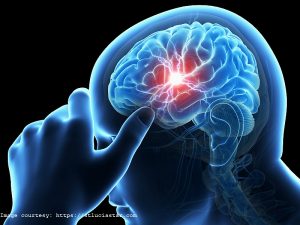- Home
- Editorial
- News
- Practice Guidelines
- Anesthesiology Guidelines
- Cancer Guidelines
- Cardiac Sciences Guidelines
- Critical Care Guidelines
- Dentistry Guidelines
- Dermatology Guidelines
- Diabetes and Endo Guidelines
- Diagnostics Guidelines
- ENT Guidelines
- Featured Practice Guidelines
- Gastroenterology Guidelines
- Geriatrics Guidelines
- Medicine Guidelines
- Nephrology Guidelines
- Neurosciences Guidelines
- Obs and Gynae Guidelines
- Ophthalmology Guidelines
- Orthopaedics Guidelines
- Paediatrics Guidelines
- Psychiatry Guidelines
- Pulmonology Guidelines
- Radiology Guidelines
- Surgery Guidelines
- Urology Guidelines
Early MRI may help detect risk of stroke in transient ischemic attack patients finds JAMA study

Magnetic resonance imaging (MRI) may play a significant role in identifying patients with transient ischemic attack and symptoms traditionally considered low risk for a stroke. The study states that symptoms such as motor and speech disorder lasting more than 5 minutes carry a substantive risk of acute stroke. The results of the study were published in the Journal of the American Medical Association (JAMA).
This cohort study of 1028 patients with low-risk transient focal neurologic events found a 13.5% rate of acute ischemic stroke detected on magnetic resonance imaging scans; the final diagnosis was revised in 30.0% of patients after brain magnetic resonance imaging. The clinical risk of recurrent clinical stroke at 1 year in this low-risk population was confirmed to be low, at 0.7%.
The study was performed to establish the frequency of acute infarct defined by diffusion restriction detected on diffusion-weighted imaging (DWI) magnetic resonance imaging (MRI) scan (DWI positive).
The Diagnosis of Uncertain-Origin Benign Transient Neurological Symptoms (DOUBT) study was a prospective, observational, international, multicenter cohort study of 1028 patients with low-risk transient or minor symptoms referred to neurology within 8 days of symptom onset. Patients were enrolled between June 1, 2010, and October 31, 2016. Included patients were 40 years or older and had experienced nonmotor or nonspeech minor focal neurologic events of any duration or motor or speech symptoms of short duration (≤5 minutes), with no previous stroke.
Patients underwent a detailed neurologic assessment prior to undergoing a brain Magnetic resonance imaging within 8 days of symptom onset. The main outcomes considered for the study was restricted diffusion on a brain MRI scan (acute stroke).
Key results of the study are as follows:
- A total of 1028 patients (522 women and 506 men; mean [SD] age, 63.0 [11.6] years) were enrolled.
- A total of 139 patients had an acute stroke as defined by diffusion restriction detected on Magnetic resonance imaging scans (DWI positive).
- The final diagnosis was revised in 308 patients (30.0%) after undergoing a brain Magnetic resonance imaging.
- There were 7 recurrent strokes at 1 year.
- A DWI-positive brain MRI scan was associated with an increased risk of recurrent stroke at 1 year.
- Absence of a DWI-positive lesion on a brain MRI scan had a 99.8% negative predictive value for recurrent stroke.
- Factors associated with MRI evidence of stroke in multivariable modeling were older age male sex, motor or speech symptoms, ongoing symptoms at assessment, no prior identical symptomatic event, and abnormal results of the initial neurologic examination.
"This study suggested that patients with transient ischemic attack and symptoms traditionally considered low risk carry a substantive risk of acute stroke as defined by diffusion restriction (DWI positive) on a brain Magnetic resonance imaging scan. Early MRI is required to make a definitive diagnosis." conclude the authors.
For more details, click on the link

Disclaimer: This site is primarily intended for healthcare professionals. Any content/information on this website does not replace the advice of medical and/or health professionals and should not be construed as medical/diagnostic advice/endorsement or prescription. Use of this site is subject to our terms of use, privacy policy, advertisement policy. © 2020 Minerva Medical Treatment Pvt Ltd